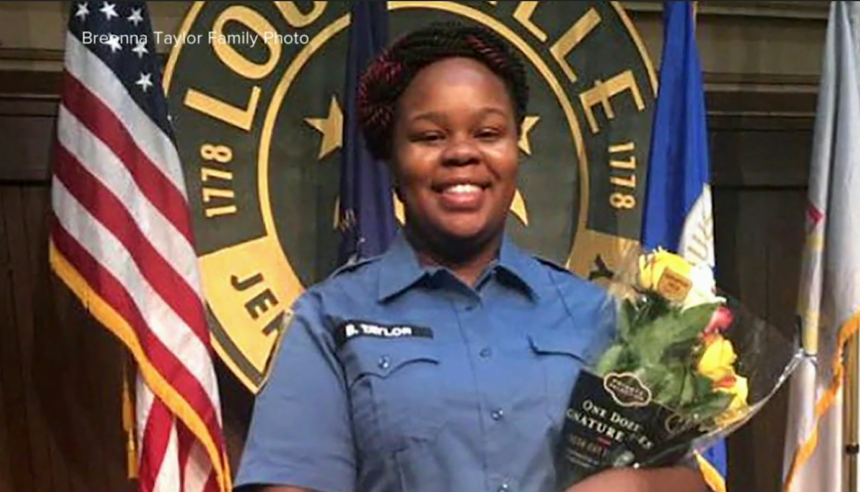Local prosecutor explains how indictment in Breonna Taylor case translates in Missouri law

COLUMBIA, Mo. (KMIZ)
On Wednesday a grand jury in Kentucky indicted one of the officers involved in the killing of Breonna Taylor with wanton endangerment.
The definition according to Kentucky legislature is as follows:
"508.060 Wanton endangerment in the first degree.
(1) A person is guilty of wanton endangerment in the first degree when, under
circumstances manifesting extreme indifference to the value of human life, he
wantonly engages in conduct which creates a substantial danger of death or serious physical injury to another person.
(2) Wanton endangerment in the first degree is a Class D felony."
ABC 17 News spoke with Morley Swingle, assistant prosecuting attorney in Boone County, about how the charge would translate in Missouri.
"In Kentucky they have a statute called wanton endangerment, a criminal statute that if you act with wanton disregard for the safety of other people in a way that puts lives at risk you've committed that crime," Swingle said.
He said there is not a statue in Missouri that is exactly the same.
"If you had a fact situation similar to that in Missouri you'd be looking at either involuntary manslaughter in the first degree or involuntary manslaughter in the second degree," he said.
"565.024. Involuntary manslaughter, first degree, penalty. — 1. A person commits the offense of involuntary manslaughter in the first degree if he or she recklessly causes the death of another person."
Involuntary manslaughter in the first degree in Missouri is a class C felony.
"565.027. Involuntary manslaughter, second degree, penalty. — 1. A person commits the offense of involuntary manslaughter in the second degree if he or she acts with criminal negligence to cause the death of any person."
Involuntary manslaughter in the second degree in Missouri is a class E felony.
The grand jury indicted former Louisville police officer Brett Hankison for allegedly endangering Taylor's neighbors after he fired into the apartment. The neighboring apartment had three people inside.
Swingle said prosecutors could look at the fact that officers thought Taylor's ex-boyfriend was at the apartment, and that officers did a no-knock warrant where they had a judge's approval to kick in the door without warning while wearing plain clothes.
Swingle said with all of those facts, as a prosecutor, he would look at whether the officer who planned the search and was searching the wrong apartment, moving quickly to use of force, was criminally negligent.
"Looking at the officer that planned the whole thing, you would say, 'Was he criminally negligent,' and if you felt you could prove it, it would be involuntary manslaughter in the second degree," Swingle said.
None of the officers were indicted for killing Taylor. Swingle said the other two officers may not have been indicted because they were simply following orders.
Swingle said if the case were to occur in Missouri he would look at involuntary manslaughter for Taylor's death.
"For some reason, they decided to have the santon endangerment be shooting through the wall, that's just not the way ... it doesn't fit our Missouri statutes. We don't have a similar wanton endangerment statute," he said. "We have a crime for exhibiting a weapon in an angry or threatening manner, and we have various assaults where you're recklessly putting somebody in danger from a deadly weapon, but on the facts that I've heard, I think involuntary manslaughter by criminal negligence fits the facts the best."
Under a statute from the federal system, officers in Missouri can also perform no-knock warrants with a judge's permission.
These warrants are used when a judge decides the person in the home is dangerous and by knocking, the police may be putting themselves in danger.
"Missouri doesn't have a statute that specifically says that, but the case law has evolved so that a judge can say, 'I'm issuing this as a no-knock warrant.' And they'll typically write 'no-knock authorized' on the warrant," Swingle said.
Single said it not common practice in Missouri for officers to be in plain clothes during search warrants. He said normally on search warrants uniformed officers will be the first one in, and officers in plain clothes typically follow uniformed officers.
"That's a good practice because if a person sees somebody in a uniform you know it's a police officer rather than somebody invading your home. So, that's another reason why I don't think that exact situation would happen very often in Missouri," he said.
Swingle said Wednesday's indictment could have impacts across the country by sending a strong message to law enforcement to be careful when doing search warrants.
"I think it would result in more training for law enforcement officers about the care you have to take when you're executing a search warrant, when you're getting a no-knock warrant, because that no-knock warrant is supposed to only be issued when you have probable cause there's a person in there who is dangerous who's likely to shoot you if you don't kick the door in," he said.
The group People's Defense, who has been protesting in Columbia for more than 100 days, was chanting Taylor's name in front of city hall Wednesday.
One protester said the indictment in the case was an injustice to the African American community.
Another protester said she did not understand how the people in the neighboring apartment were in more danger than Taylor herself.
